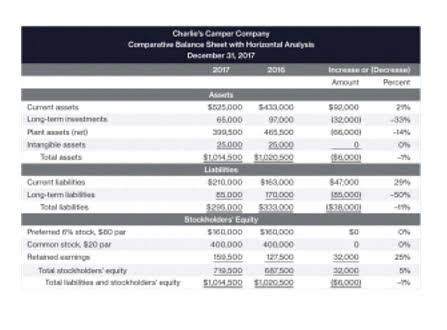
From creating a budget, choosing the right bank, hiring the correct advisors, and deciding on which type of accounting your firm will do—it all can feel overwhelming. It’s also a great practice to record the details of each expense. For example, if you’re expensing a meal, law firm bookkeeping you might record who you were with and what you discussed. After all, if the IRS audits you (shudder), you’ll want these records to prove your expenses were for business purposes. Once you have a strategy and budget in place, the work of day-to-day management sets in.

To effectively manage legal accounting for law firms, it’s wise to start with a foundation that works for all aspects of running your firm. This is because a professional legal bookkeeper and accountant can help you manage your firm’s revenue and ensure your firm’s financial transactions are handled ethically and accurately. By establishing—and following—best practices for accounting for law firms like the examples below, you’ll be better able to help your firm stay on track. The chart of accounts for law firms should include the IOLTA or trust account, as well as a trust liability account (to offset and show that the funds in the IOLTA account are not the law firm’s). Every law firm has a responsibility to stay compliant with ethics regulations, and your firm is no exception. Ethics rules vary in each jurisdiction, but there are definitely some basics when it comes to accounting for law firms.
Passing the Baton When a Lawyer Is Disqualified
At Li & Zheng CPA, our primary mission is to provide insightful advice that enables our clients to make informed financial decisions. Handling bookkeeping by yourself can be both expensive and potentially damaging for your firm. Knowing your money in real-time, and giving employees the ability to log anything spent on a case from any mobile device can be a powerful tool to give you accuracy at any given moment. Plus, electronic billing is also easier to keep track of – for money coming in and going out. While this may be spoken in tandem with accounting, bookkeeping is considered the baseline for how accountants and CPAs operate.

Get in touch to learn more about our virtual accounting solutions today. Bookkeeping is an administrative task that involves recording all of the law firm’s business transactions and reconciling and balancing the firm’s financial accounts. The terms “bookkeeping” and “accounting” for law firms are sometimes used interchangeably but they actually take the same financial data and do very different things with it. Even though legal accounting is a little more complex, there are some things that you can do to make the accounting process for law firms go as smoothly as possible. MyCase helps increase accuracy and peace of mind by providing you with all financial data (billing, payments, expenses, banking) under a single platform. You can also sync QuickBooks Online with MyCase, which further helps eliminate duplicated data entry or the hassle of reconciling accounts.
Accounting for law firms: best practices
Make sure whatever tool you use integrates, or choose an all-in-one software for both. Accrual accounting records revenues and expenses when earned and incurred, regardless of when the money is received or paid. For example, when you send an invoice to a client, you’ll mark it as revenue, even though you might not get paid for 30 days. Follow these rules https://www.bookstime.com/ and keep track of client funds every day to ensure you don’t cross any lines that can cause your firm serious problems. Help you process and send invoices, process your accounts payable, and run your payroll. Your bookkeeper can also run routine financial reports for you, including the income statement and balance sheet described in Chapter 1.
- Also, ask if you are eligible to receive a tax credit for paying timely state unemployment taxes.
- In sum, resolving the dilemma of the disqualified lawyer as defined in this article’s opening paragraphs is a challenging undertaking.
- If you’re going to hire employees, you will need to set up payroll.
- The right CPA can sort all of the pieces with you to ensure reporting is tracked and necessary taxes are paid to stay in business.
- In fact, some bookkeeping tools integrate with your practice management tools, allowing you to easily track your clients, invoices, and more.
The IRS accepts digital copies of receipts, and apps and online services make it relatively easy to scan and save them. Each of these records should be kept for a specific length of time—some for 10 years, some for as few as three. You can learn more about record retention periods in our guide to business recordkeeping.
Always keep your trust and business accounts separate
He considers the potential impact of a new legal group that aims to counter Donald Trump’s influence over courts and rule of law. By gaining an understanding of your priorities, we can work together to solve problems and address concerns in a timely manner. Businesses and individuals who choose our firm can rely on competent advice and reliable, efficient personnel. © 2023 Website design for accountants designed by Build Your Firm, providers of accounting marketing services. A lot of business expenses incurred can be deducted on your tax return.
- We believe everyone should be able to make financial decisions with confidence.
- Thankfully, good bookkeeping can also result in accurate reports on demand, make billing easier and improve the way you view your finances.
- Industry specific accounting software is always the way to go and attorney-specific software actually does exist.
- Accrual accounting records revenues and expenses when they are earned and incurred, regardless of when the money is actually received or paid.
- The FUTA tax rate is 6%, which taxes wages up to the first $7,000 earned by the employee during the year.
- Law firm bookkeeping records the financial transactions and balances the financial accounts for your firm.
This is a list of all your firm’s financial accounts, giving you a framework for where to record every transaction. In the second hypothetical, Law Firm B is retained by a Liquidator to investigate possible accounting and securities law irregularities in connection with the collapse of related mutual funds. Aware that an existing client, an accounting firm, is a potential defendant, Law Firm B tries to isolate information relating to that accounting firm and avoid any action directly adverse to it.
